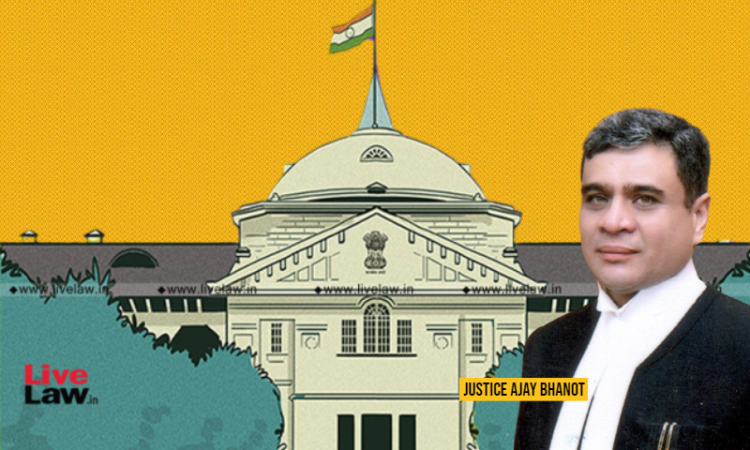- Home
- /
- High Courts
- /
- Allahabad High Court
- /
- Eligible Candidate For...
Eligible Candidate For Compassionate Appointment Must Undertake To Take Care Of Financial Needs Of Other Dependents: Allahabad HC
Upasna Agrawal
25 July 2025 12:20 PM IST
The Allahabad High Court has held that an eligible candidate for compassionate appointment must give an irrevocable undertaking on affidavit to take care of the financial needs of other dependent of the deceased.While dealing with discord between mother and wife of deceased employee seeking compassionate appointment, Justice Ajay Bhanot held “The family member who is appointed on...
The Allahabad High Court has held that an eligible candidate for compassionate appointment must give an irrevocable undertaking on affidavit to take care of the financial needs of other dependent of the deceased.
While dealing with discord between mother and wife of deceased employee seeking compassionate appointment, Justice Ajay Bhanot held
“The family member who is appointed on compassionate grounds steps into the shoes of the deceased, and is liable to shoulder the obligations of the deceased and discharge their responsibilities towards other dependent members. An irrevocable undertaking sworn on affidavit to maintain and take care of the financial needs of other dependents of the deceased by the eligible applicant is a mandatory prerequisite for the appointment on compassionate grounds. Violation of such undertaking by the appointee will be on the pain of cancellation of the appointment on compassionate grounds.”
Petitioner's husband died in harness while working as a Single Window Operator in UCO Bank, Mahmoorganj Branch, Varanasi. He was survived by a son and a mother also. Due to discord between the mother and wife of the deceased, the mother refused to issue a letter relinquishing rights in favour of the wife. Petitioner applied for compassionate appointment, however, it was mandatory for her to provide the letter. Against this mandate, petitioner approached the High Court.
The Court observed that since compassionate appointment is a welfare measure, the appointment procedure can be relaxed for appointment of eligible dependent of the deceased without unnecessary hindrances.
“Family disputes cannot not frustrate the claims of an eligible family member to appointment, or deprive other dependents of the deceased of their entitlements to avail monetary benefits from such appointment.”
The Court observed that the discord between the parties will lead to sufferings of the dependents of deceased and defeat the purpose of compassionate appointment. It held that family discord cannot hold up compassionate appointment. An amicable settlement, distributing resources adequately between competing dependents must be made, held the Court.
It further held that in such cases, qualifications, financial status, assets, liabilities, long term commitments must be inquired into and the most eligible dependent must be chosen to ensure maximum benefits to other dependents also. The Court held that the family member appointed is liable to take care of other dependents.
“In fact shared resources and distributive justice to ameliorate the financial penury of the deceased employee's dependents inhere in the concept of compassionate appointments. Benefits flowing from a compassionate appointment are the common assets of all dependents and not the sole preserve of the appointee. The said assets are liable to be distributed equitably among all dependents and not appropriated exclusively by the appointee.”
The Court observed that the petitioner had a dependent son whereas the mother of the deceased was living with her second son and had a support system. It was also observed that the petitioner did not have a house of her own while the mother did. It held that by virtue of her qualifications and young age, the petitioner was eligible for compassionate appointment as, inter alia, she could serve on the post for longer.
Since the petitioner gave an undertaking on affidavit to give 20% of her monthly salary to the mother, the Court directed the respondent to process petitioner's application for grant of compassionate appointment.
Case Title: Smt. Naina Gupta v. Union Of India And 4 Others [WRIT - A No. - 1019 of 2025]



